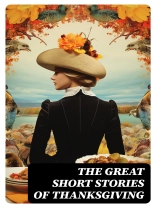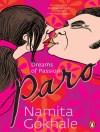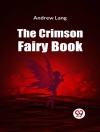The Great Short Stories of Thanksgiving presents a vibrant and compelling mosaic of tales that capture the essence of gratitude, familial bonds, and the timeless traditions associated with this cherished American holiday. This anthology deftly navigates varying literary styles from the tender to the humorously satirical, showcasing the rich tapestry of narratives that have shaped Thanksgiving’s cultural landscape. Amidst tales of family interations and gatherings, select stories offer fresh perspectives on the holiday’s significance in broader societal contexts, reflecting both historical nuances and modern interpretations. The anthology brings together the venerable voices of celebrated authors such as Nathaniel Hawthorne, Harriet Beecher Stowe, and Charlotte Perkins Gilman, alongside the narrative charm of Louisa May Alcott and Lucy Maud Montgomery. Each author’s distinct background and influence in American literary tradition are intricately woven into this collection, highlighting themes from reformist zeal and feminist thought to regional storytelling richness. Unified by the themes of Thanksgiving, these tales collectively anchor the holiday within America’s cultural and literary heritage, offering insights into different eras and ideologies that celebrate both individual and communal Thanksgiving experiences. This collection offers readers a rare opportunity to explore a wide spectrum of historical and cultural perspectives within a single volume. Its diverse assortment of voices and styles invites readers to reflect on and appreciate the rich traditions and evolving understandings of Thanksgiving. Whether you seek an educational journey through its historical contours or simply cherish the warm tales of camaraderie and generosity, The Great Short Stories of Thanksgiving promises a feast of insights and literary delight that sparks meaningful dialogue among its varied narratives.
O autorze
Harriet Beecher Stowe (1811–1896) was an American abolitionist and author, renowned for writing one of the most influential books in American history, 'Uncle Tom’s Cabin’. Born in Litchfield, Connecticut, she was the seventh of thirteen children from a family with deep religious and philanthropic convictions. Stowe used her literary talents to expose the brutal realities of slavery, and her writing offers a profound exploration of the human condition and the societal norms of her time. While 'Uncle Tom’s Cabin’ remains her most famous work, Stowe’s bibliography is extensive, reflecting her varied interests and commitment to social justice issues. Her lesser-known works, such as 'The Great Short Stories of Thanksgiving’, underscore her versatility and ability to capture the essence of American culture and tradition through her storytelling. She wrote under the belief that literature could change public opinion and ultimately lead to reform, a theory that her writing put to the test successfully. Stowe’s literary style is characterized by its vivid narratives, complex characters, and a rich emotional palette, which have together earned her a distinguished place in American letters. As an author deeply concerned with social issues, her writing was not merely for entertainment; it was also a vehicle for change, making her a seminal figure in the landscape of American literature and social activism.












